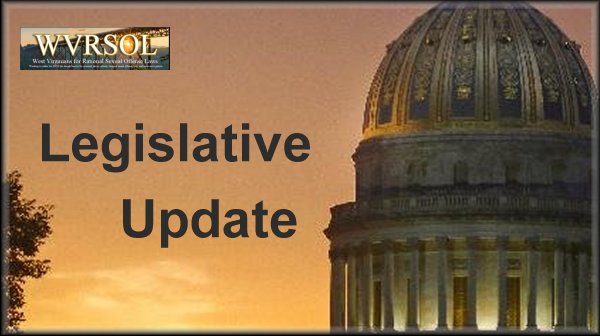By Philip . . . WVRSOL has provided written testimony in opposition to HB-4530 Creating a Domestic Violence Registry
OPPOSITION Response to HB 4530
Creating a Domestic Violence Registry
January 28, 2024
House Judiciary Committee:
West Virginians for Rational Sexual Offence Laws (WVRSOL) is a West Virginia non-profit association and an affiliate of the National Association for Rational Sexual Offence Laws (NARSOL), which advocates for society’s segment that is adversely affected by the sex offender registry. We help families impacted by the registry, seek ways to maintain and improve public safety, recommend prudent use of state funding in this area, and work to ensure that proposed legislation is constitutional.
WVRSOL opposes HB 4530 because public registries have proven unproductive; consequently, one must assume that the primary purpose of a new domestic abuse registry is for, simply put – public shaming. No other conclusion is possible.
HB 4530 – proposes the creation of a publicly accessible domestic abuser registry
- The updates proposed to section §15-2C-1 is to add a new section §15-2C-2a, a domestic abuse registry, which significantly expands the use of public shaming registration in West Virginia. Along with the Sex Offense registry, the proposed Animal Abuser Registry (HB 4655), and now the proposed Domestic Abuser registry (HB 4530) – all of which purport public safety; however, in effect, do nothing other than to publicly shame offenders. (Kaso, Philip, 2024)
Opposed to: expanded use of public shaming registries
- According to the Safety Net Project, HB 4530 will not improve public safety and have potentially harmful consequences.
Domestic violence continues to be an epidemic that requires comprehensive and effective responses that will hold offenders accountable, protect victims, and create real prevention. A domestic violence offender registry has many potentially harmful consequences and, regardless of the intended goals, is not a tool for primary prevention. To truly prevent abuse, we need to change social norms that allow and even condone one partner choosing to abuse another partner through power and control. (Offender Registries: Potential Unintended Consequences of Domestic Violence Offender Registries, n.d.)
- Registries do not work – period, so why are we creating another doomed-to-fail registry?
The vast majority of Americans believe sex offender registries make their communities safer, according to polls. A growing body of research, however, suggests otherwise. A long list of studies using decades of data have found no significant evidence that registries prevent sex crimes. (Bebernes, 2022)
A new study of ours shows that these policies are not effective in deterring crime or protecting citizens. SORN policies demonstrate no effect on recidivism. This finding holds important policy implications given the extensive adoption and net-widening of penalties related to SORN. (Zgoba & Mitchell, 2023)
- HB 4530 creates and passes a non-funded mandate from state to local county prosecuting attorneys in all 55 counties, where it will get mixed implementation, mixed enforcement, and undoubtedly mixed support.
WVRSOL supports legislation that actually works to reduce abuse and sexual offenses, help children and families, and improve public safety. Unfortunately, HB 4530 does none of these things. Therefore, we oppose and respectfully urge the House, its members, and the House Judiciary Committee to reject HB 4530.
Works Cited
Bebernes, M. (2022, March 24). Experts say sex offender registries don’t work. Can they be fixed? AOL News. https://www.aol.com/news/experts-sex-offender-registries-don-215957275.html
Kaso, Philip. (2024). OPPOSITION Response to HB 4655: Establishing an animal abuser registry. West Virginians for Rational Sexual Offence Laws (WVRSOL).
Offender Registries: Potential Unintended Consequences of Domestic Violence Offender Registries. (n.d.). Safety Net Project. Retrieved January 28, 2024, from https://www.techsafety.org/offender-registries
Zgoba, K. M., & Mitchell, M. M. (2023). The effectiveness of Sex Offender Registration and Notification: A meta-analysis of 25 years of findings. Journal of Experimental Criminology, 19(1), 71–96. https://doi.org/10.1007/s11292-021-09480-z
Click here for a PDF of the WVRSOL opposition letter: HB-4530_2024



